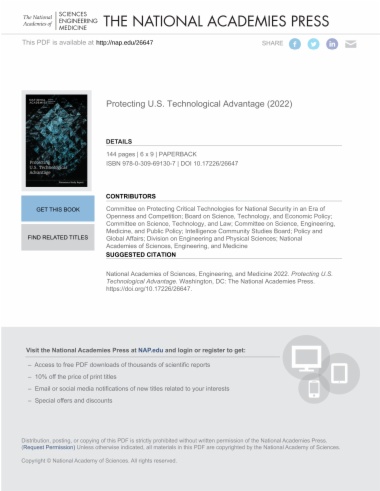

U.S. leadership in technology innovation is central to our nation's interests, including its security, economic prosperity, and quality of life. Our nation has created a science and technology ecosystem that fosters innovation, risk taking, and the discovery of new ideas that lead to new technologies through robust collaborations across and within academia, industry, and government, and our research and development enterprise has attracted the best and brightest scientists, engineers, and entrepreneurs from around the world. The quality and openness of our research enterprise have been the basis of our global leadership in technological innovation, which has brought enormous advantages to our national interests.
In today's rapidly changing landscapes of technology and competition, however, the assumption that the United States will continue to hold a dominant competitive position by depending primarily on its historical approach of identifying specific and narrow technology areas requiring controls or restrictions is not valid. Further challenging that approach is the proliferation of highly integrated and globally shared platforms that power and enable most modern technology applications.
To review the protection of technologies that have strategic importance for national security in an era of openness and competition, Protecting U.S. Technological Advantage considers policies and practices related to the production and commercialization of research in domains critical to national security. This report makes recommendations for changes to technology protection policies and practices that reflect the current realities of how technologies are developed and incorporated into new products and processes.